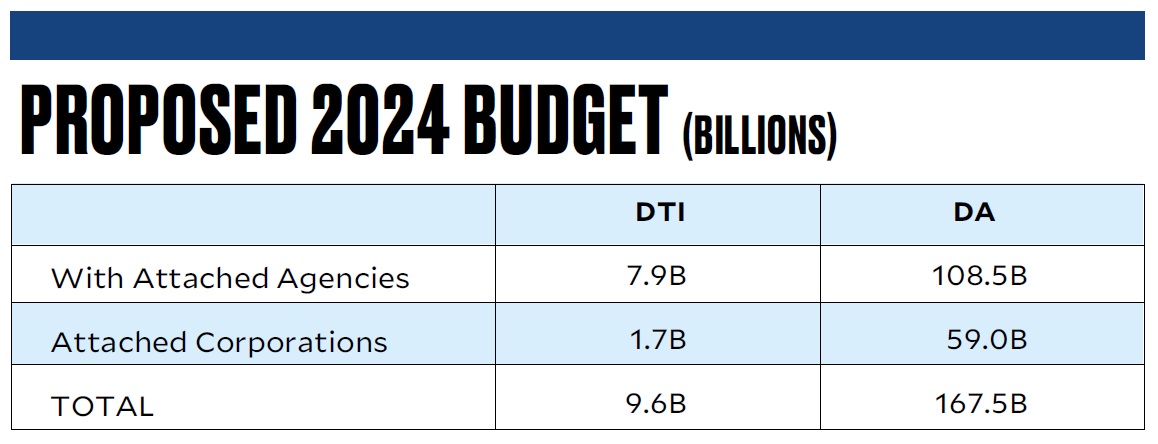As the Senate deliberates on the proposed 2024 national budget, our lawmakers should consider taking a holistic view and determine where the budget should be distributed to best serve our national development strategy. We have discussed previously how structure must follow strategy.
There was a lot of media coverage on the possible realignment of the P101.4-billion in confidential and intelligence funds (CIFs). If it will push through, will the money go to the right agencies?
Seven days ago, a senior government official suggested that certain CIFs should go to “the intelligence community, as well as the Coast Guard and the Armed Forces of the Philippines.”
Importance of strategy
If transferring is allowed, the first step is to consider our national development strategy. Of course, there is a need for CIFs. But the proper amounts and correct agency distribution must be determined.
Since budget should follow strategy, distribution of excess CIF amounts should also consider agencies that lack critical budgets to effectively implement the national strategy. Contributing to economic growth is as important as surveillance and information collection for the sake of security.
Agriculture has been identified as a key priority in our development strategy. But to be effective, we must graduate from a mere production orientation to taking care of the whole value chain, from production to marketing.
It is said the Department of Agriculture (DA) is responsible for basic production, while the Department of Trade and Industry (DTI) handles food processing and agriculture marketing. A look at the budgets of the DA and the DTI shows that a bigger budget for DTI must be given for agriculture to succeed.
As a percentage of the total budget, the DA has 2.9 percent while the DTI has only 0.2 percent. The DA’s budget is 13 times than that of the DTI’s.
Without considering its attached corporations, the increase in the DA budget for 2024 is P7.3 billion, almost the same as the DTI’s entire budget of P7.9 billion.
But for agriculture to succeed, key areas such as food processing and smart marketing are areas the DTI must effectively undertake. With an inadequate DTI budget, the agriculture value chain will not be addressed. Consequently, our agriculture strategy will fail.
Looking at the bigger picture, we should determine which departments must receive those extra funds.
P50-M initiative
We cite here a P50-million initiative that was previously turned down. It should still be considered, because it clearly supports our national strategy.
I have previously written about how Thailand, with the correct strategy and necessary budget, has significantly exceeded us in agriculture exports. Last year, they exported $35.6 billion. Though they were way behind us in the past, their export performance is now five times ours.
We came across a well-crafted DTI budget request that incorporated key elements of Thailand’s strategy. It was called “Enterprise to Export Development Pathway” but it was turned down by a body outside the DTI even before it could be submitted to Congress.
This request has the following critical components, which are largely missing in our approach today: (1) formulation of strategic plans and projects (P5 million); (2) development and promotion of exports and investments (P10 million); (3) firm level support, including business consultancy (P27 million); and (4) other program expenses (P8 million).
This small but innovative P50-million request fully supports agriculture growth, which is a core element of our development strategy. There are other alternatives outside intelligence agencies that are critical to our strategy and which deserve to be considered for those excess CIFs. Now is the opportune time to ensure that budget follows strategy, especially for the agriculture transformation we so badly need.
The author is Agriwatch chair, former secretary of presidential flagship programs and projects, and former undersecretary of the Department of Agriculture and the Department of Trade and Industry. Contact is agriwatch_phil@yahoo.com
